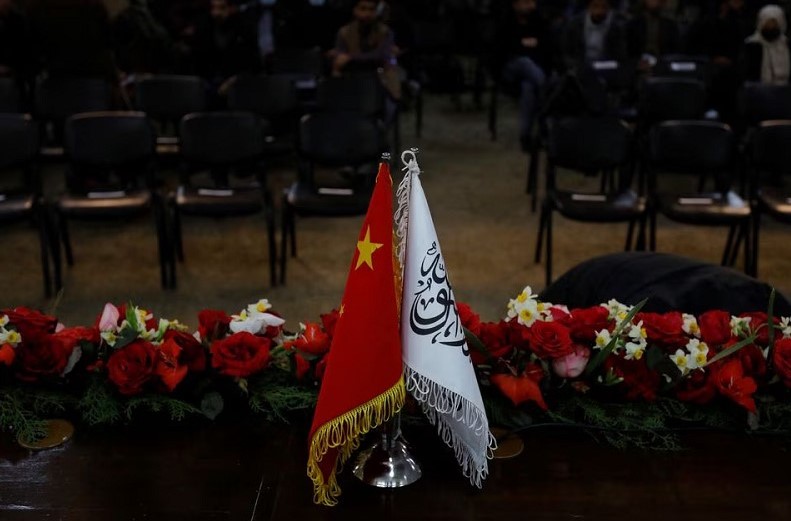The most debatable and perplexing question in international relations is the answer to what is the defining definition of national interests. If an exact and accepted answer is hard to find for this question, there is so much fluidity of opinions on this that in future there is hardly any hope for answering this puzzle!
What is right for me is only right for me and sharing is not caring always!
Shop Hotel Collection Reed Diffusers – The Perfect Blend of Modern Elegance and Classic Charm
The broadly divided two components of this phenomenon are the vital or necessary and Non-Vital or Variable interests of a nation. Vital interests are further subdivided by Hans Morgenthau into physical, political and cultural identities for a nation. Variable or Non-Vital interests are determined and compulsions of the present circumstances in a particular time or any epoch of history.
Also Read; lets’ slowly bankrupt each other
Keeping the above broad outline of national interests, the new emerging proximate scenario of Beijing and the Afghan Taliban provides the analytical lens for bilateral relations, based on their national interests.
Chinese first ambassador to Afghanistan Zhao Sheng assumed his responsibility in the Chinese Embassy in Kabul on 13 September 2023. He was the first foreign ambassadorial dignitary to assume office in the war-torn country after the fall of Kabul to the Taliban in August 2021.
Ambassador Zhao Sheng in his first statement asked the world community to diplomatically engage the Afghan Taliban government to soften some of the hard hard-drawn policies of them.
The Afghan Taliban warmly welcomed the Chinese Ambassador at the Afghan Presidential Palace by presenting a Guard of Honour to him when the newly appointed Ambassador came to formally present his diplomatic credentials to the Prime Minister of Afghanistan, Mullah Hasan Akhund. Taliban see this as the breaking of ice of the international community towards them.
Also Read; The X factor of Politics
The question of resuming diplomatic ties between the two neighbouring countries is not as simple as it appears to be.
Search for a Rail Pass
The Chinese Xinjiang region borders Afghanistan, the habitat of Uighur Muslims who are demanding a separate homeland, called East Turkistan, for themselves.
Beijing wants a friendly neighbouring Afghan border with this restive region which in a UN report has been called a detention centre for Uighurs and other minorities living in the region. China does not want to see eroding it most hard-won national-stability-and-unity in this region under one pretext or another.
To extend their circle of friends after brokering their successful rapprochement between Saudi Arabia and Iran, Beijing is proactively cultivating and reinvigorating its ties with countries of the world.
Their Afghan foray is another example of this extension of the friends circle with the main concern of garnering a safe neighborhood for them.
Beijing is mainly cautious lest the rigorously motivated East Islamic Turkestan Movement (ETIM) might not launch attacks inside the Xinjiang region which it had earlier stopped with the help of Afghan leader, Mullah Omar in 1998.
The proposed Belt and Road Initiative (BRI) of China made it a spotlight due to its importance both historical and strategic as the entrance of the Old Silk Route and the new gateway of BRI.
China spares no rift in its protection of BRI, what it calls the Project of the Century, and safeguarding national security and unity through the new ‘Great Wall of Iron’.
It was under these circumstances that the two countries, though opposed on the ideological spectrum, were brought closer to each other. Their national interests make them join hands.
Also Read; China, Iran, and Saudi Arabia; linning from East Asia to West Asia
Taliban were considered an asset by Beijing even before they took Kabul in August 2021. Pivotal Force as called by the then Chinese Foreign Minister, Wang Yi, could not be easily ignored by them due to the fragility and weakness of the US-supported Afghan government of Ashraf Ghani.
Text Link Test
The bilateral agreements signed between China and Afghanistan are led more by tacit moves of regional engagement, bilateral stabilization, and relieving international pressure than by the economic development and cooperation between the two.
From this scenario, it emerges that out of ten, Nine times states act in international relations and world politics only with their national interests.
No matter, how ideologically, economically, or politically they may be divergent from each other. They do not hesitate to join hands and move with their opponents.
Otto van Bismarck has rightly said, “Politics is the art of possible…. the attainable, the art of next best.”
(the article was also published in the EU Intelligence.com)
